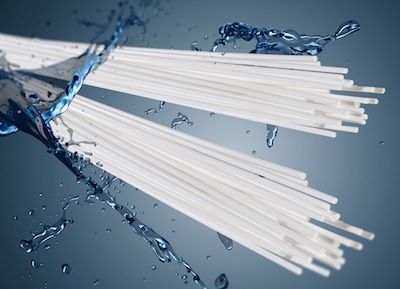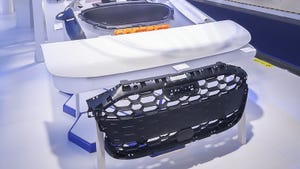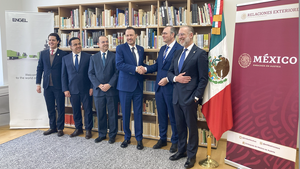BASF starts polyarylsulfone production line in Korea
Expansion to serve growing global demand for high performance thermoplastic in automotive, electronics and water filtration industries; additional annual capacity of 6,000 tonnes/year of polyarylsulfone benefits customers in Asia with fast response and proximity.
April 13, 2018

Germany’s BASF has started up a new production line for its high-temperature resistant polyarylsulfone thermoplastic Ultrason at its site in Yeosu, Korea. With the new line the global annual capacity for Ultrason will increase by 6,000 tonnes annually to 24,000 tonnes/year, serving the growing market demand worldwide.
|
The expansion in South Korea adds 6,000 tonnes per annum if capacity to BASF’s global capacity. |
|
Polyarylsulfone is used in water treatment membranes, as well as the electronics, automotive and aerospace industries for the production of heat-resistant, lightweight components. |
The plant in Yeosu was opened in 2014 as the first Ultrason plant in Asia. Ultrason is the tradename for BASF’s product range of polyethersulfone (PES; Ultrason E), polysulfone (PSU; Ultrason S), and polyphenylsulfone (PPSU; Ultrason P). Latest innovations include the optimized Ultrason Dimension, a highly filled PES known for its extraordinary dimensional stability and excellent flow properties.
“This capacity expansion will strengthen our competitive position and drive the global versatility of our polyarylsulfone business,” said Giorgio Greening, head of BASF’s global business unit Styrenic Foams and Specialty Polymers. “The expanded production enables us to accompany our customers’ growth at a high technical level and with the optimum product portfolio.”
BASF produces Ultrason in Ludwigshafen, Germany and in Yeosu, Korea. Both locations are designed to produce the entire product range of Ultrason S, E and P, and provide BASF with the flexibility to optimize supply capabilities to customers around the world. “With the new line we will continue to reliably serve customers and industry partners with high-quality material. Especially customers in Asia will benefit from fast response and proximity,” said Olivier Ubrich, head of global business management Specialty Polymers. “With increasing urbanization and the growing need for clean water management, Ultrason is the ideal material for filter membranes thus contributing to the desalination and purification in water treatment.”
Ultrason is widely used in the electronics, automotive and aerospace industries for the production of heat-resistant, lightweight components. The thermoplastic can withstand temperatures up to 220°C without altering its properties, and possesses chemical stability. For example, it enables the compact design of the new headlight reflector in the Hyundai ix35, owing to its superior temperature resistance.
The high-performance material is employed in membranes for water filtration and medical devices, in hot water and food contact parts for espresso machines or microwave-proof dishes as well as in premium household appliances. It complies with the American FDA (Food and Drug Administration) and the European regulations for food contact applications. Ultrason is also used in the production of carbon fiber composite materials.
About the Author(s)
You May Also Like






